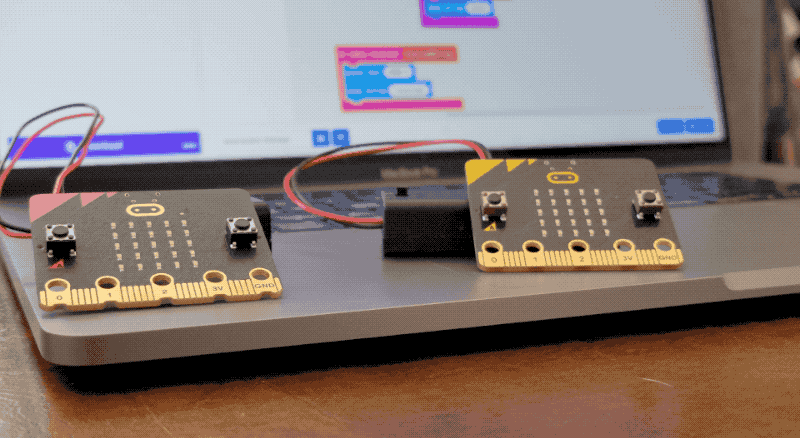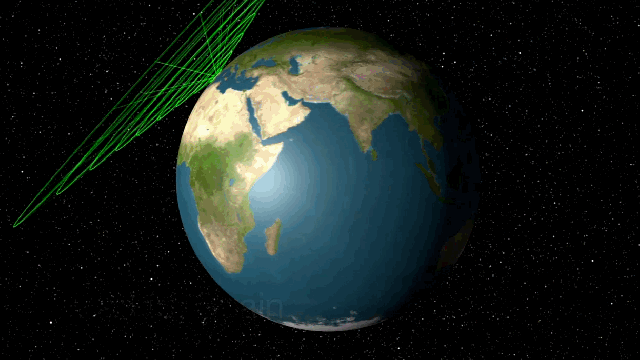Next week, the annual Hour of Code celebration will introduce millions of students to computer science using fun tutorials that show that anyone can learn to code. This spotlight on coding coincides with Computer Science Education Week, Dec. 4-10. Each year, this event inspires K-12 students to learn computer science and advocates for equity in computer science education.
| |
Click here for even more coding activities and lesson ideas. | | Audience: Formal and informal K-8 educators and students Event Date: Thursday, Dec. 7, at 1 p.m. EST
Join Minecraft and Flip for an engaging Computer Science Education Week event featuring robotics technologist Kamak Ebadi from NASA’s Jet Propulsion Laboratory. Kamak will share his journey from dreaming about NASA as a 14-year-old in Iran to working on rover missions to Mars. He'll also discuss the power of coding in shaping future careers and how NASA will return astronauts to the Moon on Artemis missions.
Attendees will also learn how students can start their coding journey with Minecraft's Artemis Missions games, developed in collaboration with NASA.
| | Educator Professional Development | | Event Date: Thursday, Nov. 30, at 4 p.m. EST Celebrate the culmination of Aviation History Month with NASA CONNECTS. During this 45-minute event, CONNECTS members will hear from an aviation history subject matter expert to learn more about the first “A” in NASA and how aviation at NASA has evolved throughout the years. Not a member of NASA’s online community of practice for educators? Click here to join CONNECTS to stay up to date on the latest NASA resources, collaborate with educators, and gain access to exclusive events. | | Audience: Rural educators in the U.S. Event Date: Thursday, Dec. 7, at 8 p.m. EDT Join NASA’s Science Mission Directorate for a monthly series that connects rural educators to resources, networking, and professional development opportunities. This month’s webinar will focus on NASA’s Heliophysics Education Activation Team (NASA HEAT). Special guest Christina Milotte will discuss how attendees can join a professional learning community of teachers to bring heliophysics to the classroom. Participants will learn about standards-aligned activities and explore a variety of opportunities and materials to safely view the upcoming total solar eclipse. Click here to register to attend. | | Higher Education Opportunities | | Audience: Faculty at U.S. accredited academic institutions Application Deadline: Jan. 14, 2024 Contact: NASA’s Glenn Research Center in Ohio is seeking applicants for a 10-week summer faculty fellowship opportunity.
This program aims to enhance faculty professional knowledge and enrich the research and teaching at U.S. academic institutions by infusing NASA mission-related research and technology content into classroom teaching. Participants help to advance NASA’s mission by contributing to research, technology, and engineering work. | | Audience: Individuals, universities, and non-profit organizations Response Deadline: Jan. 24, 2024 NASA’s Science Mission Directorate (SMD) is seeking input on approaches to improving the ease of use of their omnibus of solicitations for proposals, called “Research Opportunities in Space and Earth Science (ROSES).” Proposers at all levels of experience, sponsored research offices, and any others who may assist in the preparation of SMD proposals are encouraged to submit feedback. Click here to read the Request for Information (RFI) documents and submit a response via the NASA Box account linked in the Response Instructions. | | Opportunities With Our Partners | | Application Deadline: Jan. 15, 2024 | | Application Deadline: Jan. 22, 2024 | | Application Deadline: Jan. 31, 2024 | |
Are you looking for NASA STEM materials to support your curriculum?
Find NASA science resources for your classroom. The NASA Science Activation (SciAct) program connects diverse learners of all ages with science in ways that activate minds and promote a deeper understanding of our world and beyond. https://science.nasa.gov/learn
Check out the ‘Explore NASA Science’ website! Science starts with questions, leading to discoveries. Visit science.nasa.gov. To view the site in Spanish, visit ciencia.nasa.gov. | | Visit NASA STEM Engagement on the Web: | | | | | | |
|

















